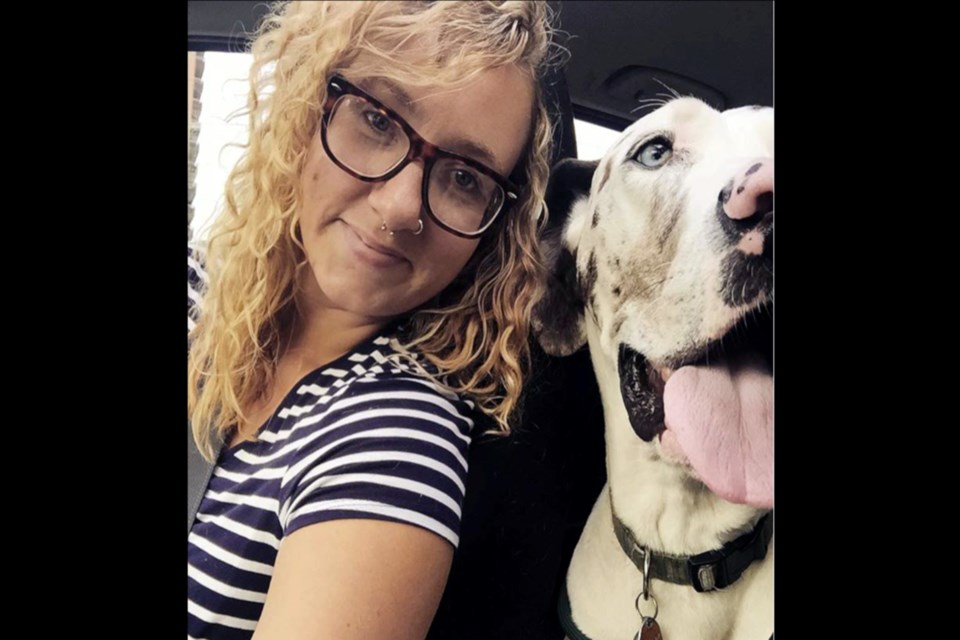ATHABASCA — Believe it or not, there are people who research what a fair and equitable world might look like, and a new Athabasca University (AU) assistant professor is one of them.
Dr. Kate MacDonald was cross appointed to sociology and the Master of Arts and Interdisciplinary Studies – specifically the Centre for Social Sciences in the Faculty of Humanities and Social Sciences – at the university in March and brings a wealth of knowledge, not just about racial or global injustice but the finer points as well, like affordable housing and equity.
“I did my undergrad at a small university in New Brunswick called St. Thomas that was really focused on liberal arts, and I became really enamoured with critical inquiry through this program I took that was really interested in how people come to believe what they believe and how different disciplines will look at that question differently,” MacDonald said in a recent interview.
That experience sparked a love of learning and inquiry – a passion of learning about other people and thinking about how people can learn to be different in terms of equity – how to create a world that's more just and equitable and what might that look like.
"It's a classic sociological conundrum,” she said. “This division between thinking of equality and equity and so usually when we think about equality – the idea of everyone gets the same thing – and equity is a real consideration of what histories, what legacies bring us to where we are and what are we starting from.”
MacDonald said thinking about racial injustice, gender injustice or even global injustice is really thinking about how society can attend to the historical inequities and figuring out why some people don’t have the same opportunities as others.
“Right now, I'm teaching the capstone course in the Interdisciplinary Studies program and that's been so delightful because it's capturing students at the end of their program and helping them write their final paper,” she said. “It's been really great for me as a new faculty member because I'm learning about the program through student experiences but also getting insight into some of the cool thinking that comes out of that program and the projects that they're working on and I'm learning so much from them, which is really exciting.”
In the coming year MacDonald will be coordinating courses like Social Problems and Research Methods
"I love thinking about how we know about the world, how can we study, how do we make claims about the social world,” she said. “And then I'll be working on a course that will help students think about what we talked about as knowledge mobilization – this idea of how do we take academic thinking, academic research, and share it with different audiences.”
One of those different ways is social media. Tik Tok has become a popular platform where you can follow Indigenous dancers, learn sign language, follow the life of someone with Tourette’s Syndrome, and they all control the message because it is a recording of their life.
“And what a cool way to really think about sharing culture, amplifying voices and having this kind of multiplicity of opinions,” said MacDonald. “I think there's lots of challenges with social media in terms of ensuring that information is accurate and where things are coming from, but I think some of those benefits are just so rich and there's so much potential in this ability to connect.”
Before AU, MacDonald worked for Capitol Region Housing in Edmonton and said it sparked her interest in affordable housing as a site of inequity and learning.
"My research is more on the subsidized housing section of the affordable housing continuum,” she said. “So, my research isn't a lot on homelessness. Certainly homelessness – or as many people are calling it now houselessness – relates to the affordable housing spectrum, but I don't focus specifically on it, but absolutely it's an equity issue.”
In a country like Canada with so many resources how do we have people who are houseless is one of the questions she asks, adding it brings up questions around equity and community — are houseless people considered part of the community? Are they valued? And how do people interact with them?
"There's really good research that connects housing to other outcomes,” she said. “So not only being housed but to educational outcomes, to health outcomes. This has an ongoing generational impact on people when their housing is inadequate or unsafe or unaffordable.”
The question of equity is what drew her to AU as an educator; AU accepts all learners regardless of age or previous education history.
“One of the things I love about AU is that it's so accessible to learners and that mission to open, flexible, accessible education is really exciting to me,” she said. “Distance education is so important for accessibility and how much it has changed and how exciting it is to kind of be at the forefront of what accessable distance and remote education can look like for people.”



